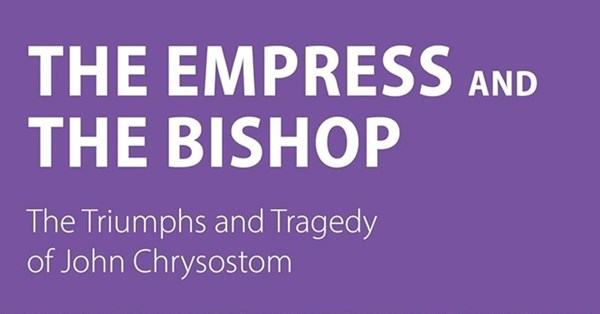READERS familiar with the Book of Common Prayer will know the Prayer of St Chrysostom, which concludes the prayers after the third collect at morning and evening prayer. Archbishop Cranmer took it from the Orthodox Divine Liturgy ascribed to St John Chrysostom, whose works were popular with 16th-century reformers.
For those who know John Chrysostom only as the traditional author of that prayer, Patrick Whitworth has written a clear and readable account of his life and ministry, enlivened by quotations from Chrysostom’s own works and those of early church historians. He draws too on modern scholarship, not least the more detailed Golden Mouth by the late J. N. D. Kelly. The first three chapters set out the political and ecclesiastical situation into which John was born, c.349, in Antioch.
After Constantine’s adoption of Christianity in 313, Church and State became closely intertwined. Both had their problems: the empire faced regular invasions by the Goths, and the Church was riven by doctrinal disputes about the nature of Jesus Christ. The Council of Nicaea in 325 defined Christ as “one in being”, homoousios, with the Father, but the Arian party, holding him to be less than the Father, remained strong. It had the support of several emperors in the middle of the century, until Theodosius I, emperor from 379 to 395, who upheld Nicene Christology.
Educated in the Greek and Latin classics by the rhetorician Libanius, John was baptised in 368, and became an assistant to Bishop Meletius. In 372, he withdrew from Antioch to live a strict ascetic life as a solitary in the mountains near by. Ordained deacon in 379 and presbyter in 386, he preached his first sermon in the cathedral church in 387. His oratorical powers soon earned him the cognomen “Golden Mouth”, and he quickly became a popular preacher.
In 397, John was appointed Bishop of Constantinople by Arcadius, successor to Theodosius as emperor in the East. John went to the capital with the intention of making it a godly Christian city, and had strong views about what that meant. He soon found himself representing Arcadius in negotiations with the Goths, and became embroiled in ecclesiastical politics. A group of Egyptian monks loyal to the teaching of the third-century teacher Origen arrived in the capital, escaping the hostility of Theophilus, Bishop of Alexandria, and hoping for support from John. He thereby incurred the hostility of Theophilus, who was already jealous of the growing influence of the bishop of the imperial capital.
Popular in the city, John soon lost the support of the Empress Eudoxia and the court by criticising aspects of her behaviour and preaching against the weaknesses of women. John was uncompromising in his demands for commitment to strict Christian living. He became embroiled, too, in disputes among bishops.
In 403, his episcopal enemies in and around the city organised the so-called Synod of the Oak. John was condemned and deposed, and sent into exile. Recalled briefly by Arcadius, he was again sent into exile in Armenia. For three years, his circumstances were tolerable, but, in 407, the support of Pope Innocent I notwithstanding, he was exiled further into Armenia, and died on the way.
Whitworth’s book has the enthusiastic commendation of the Ecumenical Patriarch Bartholomew, distant successor of John Chrysostom as Bishop of Constantinople, and the assurance of his blessing on its readers.
Canon Hugh Wybrew was formerly Vicar of St Mary Magdalen’s, Oxford.
The Empress and the Bishop: The triumphs and tragedy of John Chrysostom
Patrick Whitworth
Sacristy Press £25 hbk, £16.99 pbk
(978-1-78959-385-3 hbk)
(978-1-78959-370-9 pbk)
Church Times Bookshop £22.50, £15.29
















